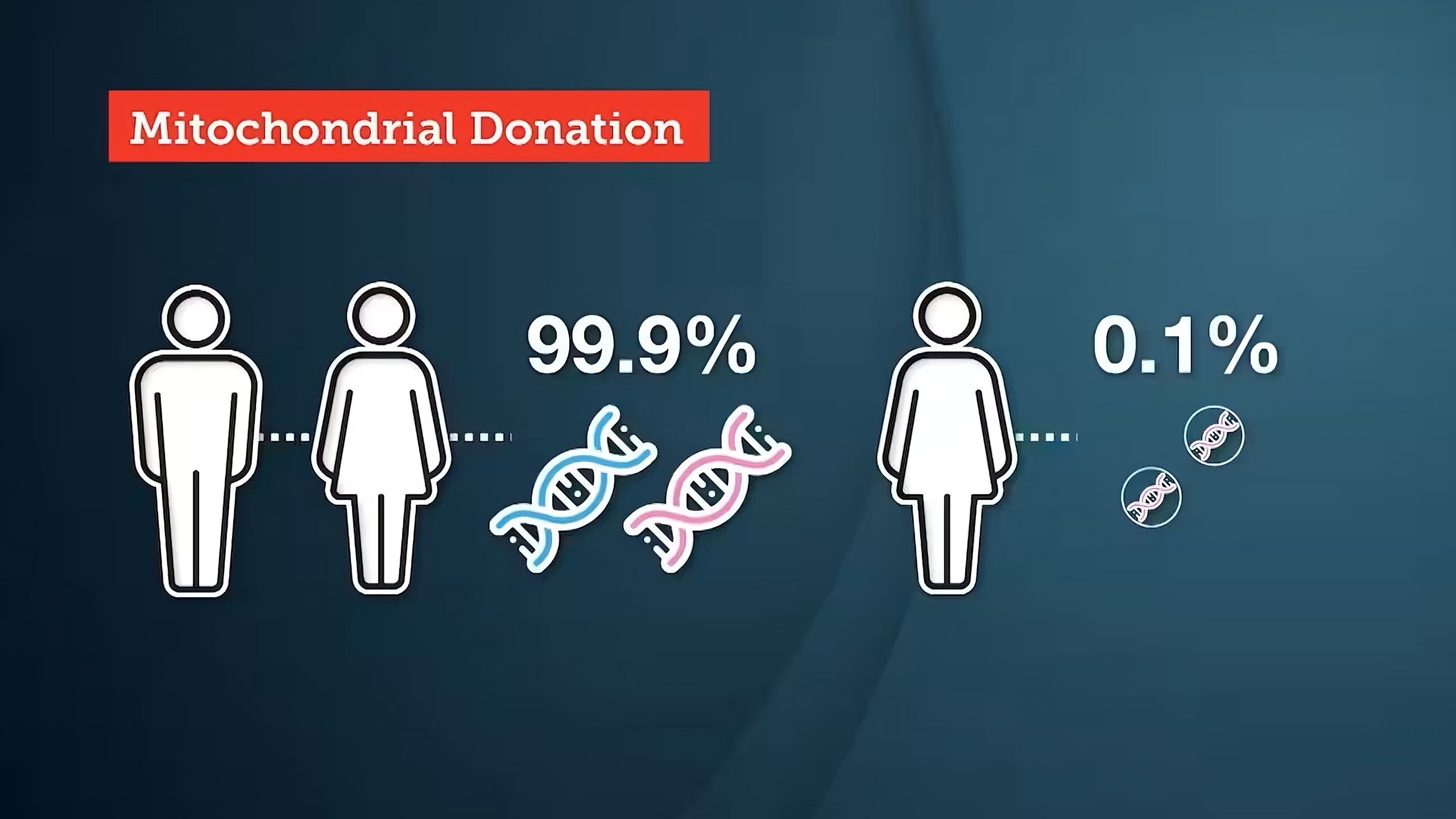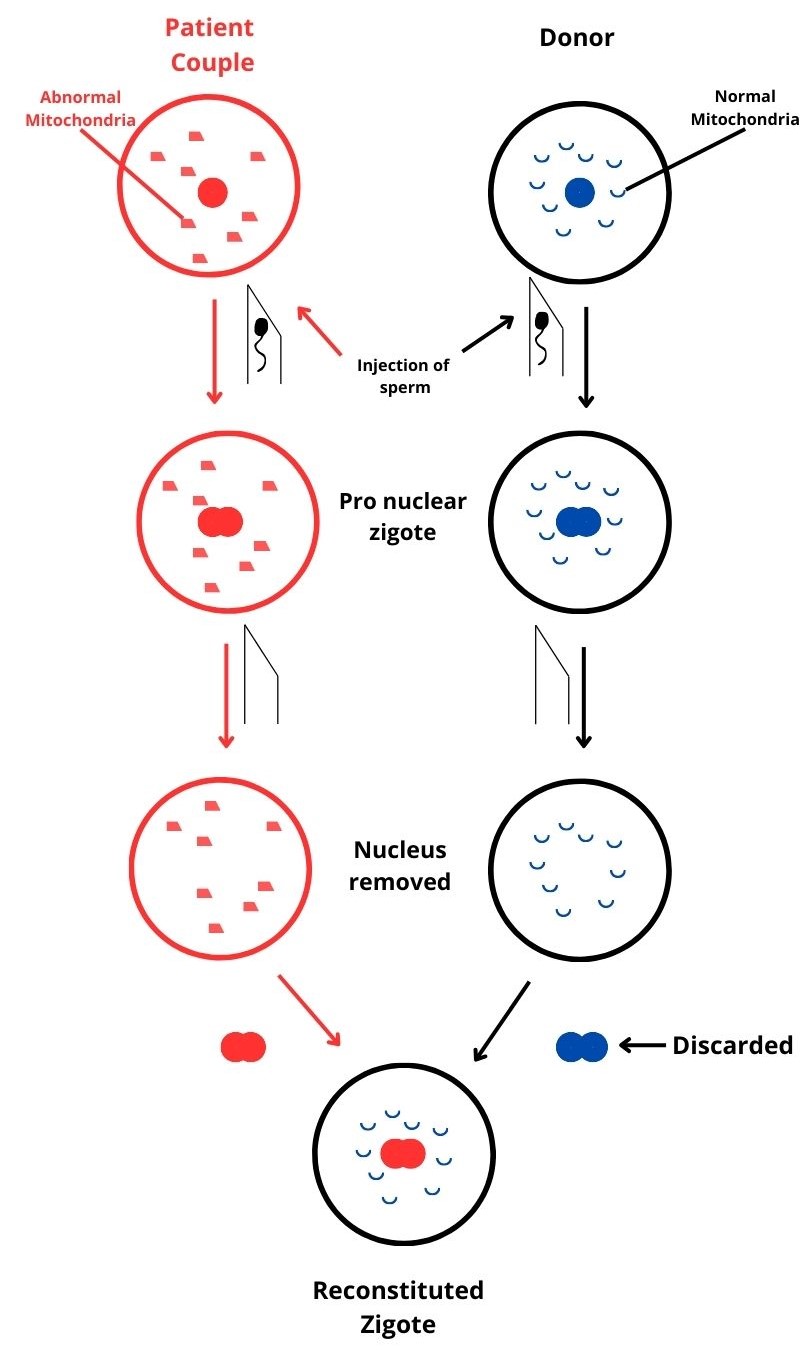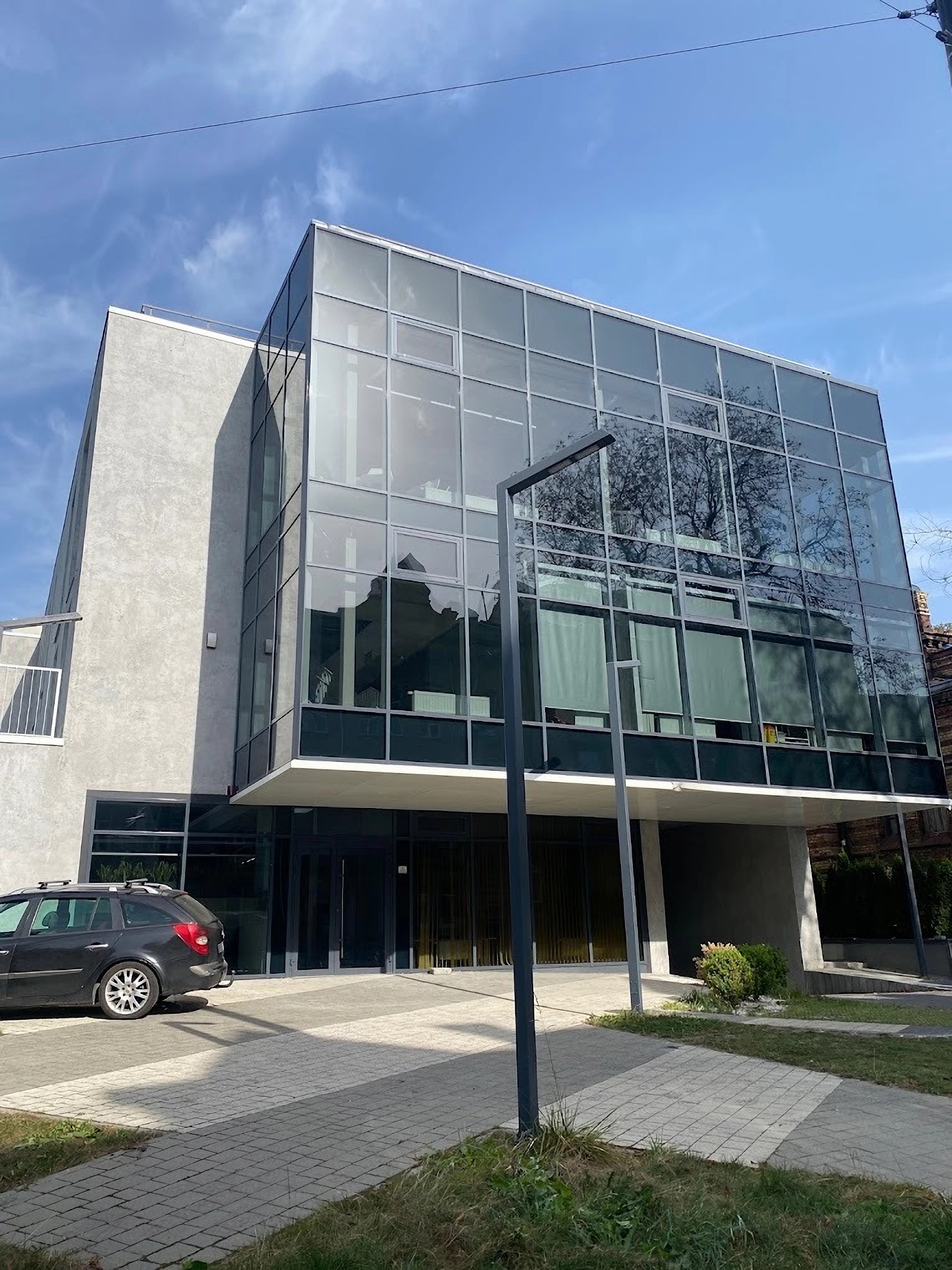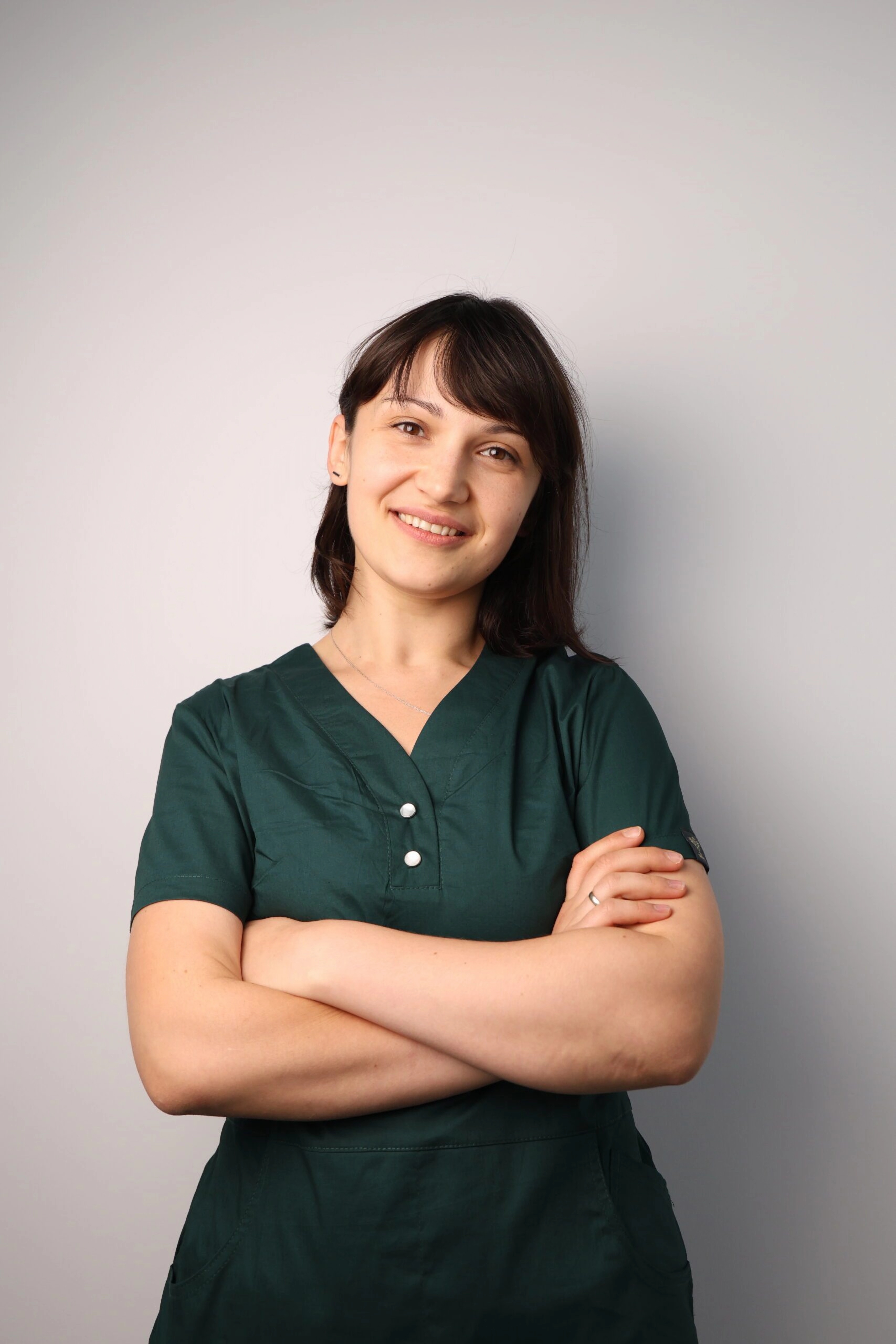Pronuclear transfer (mitochondrial donation)
How do we organize your medical trip?





Mitochondrial donation
Pronuclear transfer PNT (mitochondrial donation) is a cutting-edge reproductive technology that allows couples to give birth to a genetically related child, who previously could only be offered in vitro fertilisation with a donor egg.
This method is sometimes referred to by the generic term mitochondrial transfer IVF (three parent in vitro fertilization). However, it is important to distinguish which method of mitochondrial therapy will be used.
The essence of the pronuclear transfer method in the mitochondrial donation procedure is that, after fertilisation, two nuclei are created in the egg cell: one from the mother and one from the father. Geneticists remove these two nuclei and transfer them to a healthy donor egg cell whose nuclei were previously removed.
The result of three-parent babies mitochondrial replacement therapy is a 'reconstructed' egg cell that has a genetic set of nuclear DNA from the mother and father (99.9% of the approximately 25,000 genes) and mitochondrial DNA from the donor (0.1% of the total number of genes).

The mitochondria of the donor egg only provide energy to the embryo and do not affect the genetic component of the nucleus. The child inherits genetic information from the mother and father.
Mitochondrial donation is appropriate in two cases:
- In case of multiple unsuccessful attempts at conventional artificial insemination, IVF (in vitro) is used. Embryologists have found that in women over the age of 40, the percentage of successful in vitro significantly decreases. Because due to the poor quality of the mitochondria of a woman's egg, the development of embryos stops at the blastocyst stage (day 5).
Mitochondria are intracellular structures that are responsible for the production and maintenance of energy for the needs of the body, and therefore their role is also to provide vitality for the development of the embryo. As women age, the quality and number of mitochondria in the egg deteriorates, which leads to the termination of embryo development, as it does not receive the necessary energy for development. - If a woman is a carrier of genetic mitochondrial diseases caused by mutations in mitochondrial DNA. There is a risk of transmitting defective mitochondrial DNA with mutations from mother to child, which can lead to the development of a severe mitochondrial disease.
Comparison of assisted reproductive technologies
| Criterion | Mitochondrial donation | Donor eggs | Surrogate motherhood |
| The essence of the method | Replacement of mitochondria in the egg cytoplasm | Using a donor egg | Carrying a fetus by a surrogate mother |
| Purpose | Prevent the transmission of mitochondrial diseases Improve the quality of the patient's egg, eliminate egg defects | A healthy donor egg will increase the chances of successful fertilization and pregnancy |
To help women who, for medical reasons, cannot bear and give birth to a child on their own |
| Advantages | Allows the use of genetic material from both partners. The genetic component of the parents is 99.9%. | Provides an opportunity to give birth to a healthy child |
Provides an opportunity to have a genetically related child. The surrogate mother has no genetic relationship with the child |
| Disadvantages | A complex medical procedure. The procedure is available only in a few countries | Possible emotional problems | Possible issues of legal settlement |
| Cost | from 15,000 euros | from 5,000 euros | from 45,000 euros |
| Availability | Available in 9 countries | Available in many countries | Available in some countries |
| Legal status | Authorized in 9 countries of the world | Allowed in many countries | Allowed in some countries |
| Risks | Safe for life and health of mother and child | Safe for life and health of mother and child | Safe for the life and health of the mother and child |
Doctors See all doctors
According to statistics, 1 in 5000 children suffers from severe mitochondrial disease. There are currently no effective treatments for such diseases, and mortality is high under the age of 5 or at the embryonic stage. Defects in the functioning of mitochondria lead to CNS (central nervous system) damage, muscle, respiratory, cardiac, and liver failure. In approximately 50% of cases, mitochondrial diseases are caused by a problem contained in one of 37 mitochondrial DNA genes. Genetic diseases caused by mutations in mitochondrial DNA are inherited exclusively from the mother.
In this case, the use of the method of pronuclear transfer (mitochondrial donation) in the IVF program is the only chance to give birth to a genetically healthy child.

Which countries use the mitochondrial donation method?
Ukraine is the first country in the world to successfully apply pronuclear transfer in an in vitro artificial insemination program. In 2017, the world's first child was born in Ukraine, the birth of which was made possible by the use of the pronuclear transfer method. The whole world learned about the sensational achievements of Ukrainian embryologists, and delegations from Western media, including CNN, BBC, and the Guardian, visited Ukraine.
Thus, since 2017, Ukrainian reproductive specialists have launched a new area of reproductive medicine. The direction is aimed at improving the quality of the egg by means of pronuclear transfer of the patient's nuclei to the cytoplasm of the donor egg.
Until 2017, the method of cytoplasm donation involved the following procedure: cytoplasm from a donor egg with healthy mitochondria was injected into the cytoplasm of a patient's egg, in which the mitochondria were damaged. This is the simplest method of mitochondrial donation. This procedure improves the quality of the patient's eggs, and helps to eliminate defects in the eggs associated with the provision of energy resources, and leads to normal embryo development. However, the cytoplasmic transfer method does not eliminate the mother's defective mitochondria, which means that this technology is not advisable for women who are at risk of transmitting mitochondrial diseases to their child.
In addition to Ukraine, mitochondrial donation has been authorized in the United Kingdom since 2015, Australia since 2022, and in some US states and Mexico. In total, as of 2024, mitochondrial donation is used in 9 countries.
What is the price of IVF using three parent embryo technique?
It is believed that this treatment method is expensive. Clinics conducting research and treating patients using the mitochondrial donation method must have the appropriate state licenses. In Ukraine, IVF using mitochondrial donation costs an average of 15,000 euros. In the UK, the price of the medical procedure is from 25,000 euros.







